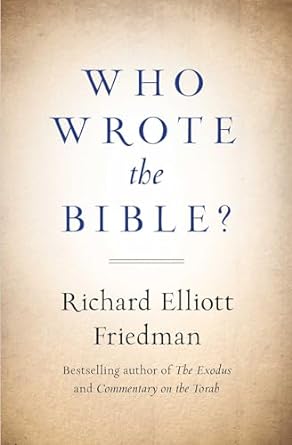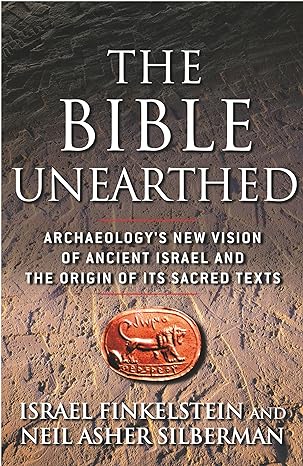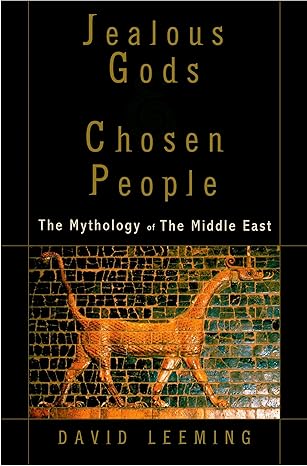Lemming's "Jealous Gods and Chosen People": Understanding the Myths Behind Israel's Exceptionalism
The justification of Israel's war crimes against the Palestinians partly stems from the belief that the nation of Israel is exceptional -- unique and superior to other nations -- because the Israelis are the so-called "chosen people of God". The fact of the matter is that this belief is founded on myths which were taught to us as literal and self-evident truths from childhood. David Leeming sheds light on these myth in his enlightening work, Jealous Gods and Chosen People.
THEOLOGYMYTHSHISTORYRELIGIONETHNIC IDENTITYWAR/WARFAREORALITY/ORAL TRADITIONBIBLIOLOGYFUNDAMENTALISMEXCEPTIONALISMGEOPOLITICSCHRISTIANITYMIDDLE EAST
SCOTT MAGKACHI SABOY
5/26/20245 min read
Double Standards
This religious conviction partly explains why when Hamas murdered over 700 civilians in October 7, 2023, Zionists slammed it as an act of terrorism, and rightly so. But when Israel slaughters at least 15,000 women and children in retaliation to the Hamas attack, it is called an act of self-defense. This is not so surprising though, for if we go for a literal reading of the Bible, the Hebraic god reportedly ordered Israelites to commit mass murder or genocide (e.g., Numbers 12; 14; 21: 2-3; 31; Deuteronomy 7:2, 20: 17; Joshua 6: 17, 21).
In his landmark book, Just and Unjust Wars, Michael Walzer (2015, 228) characterizes terrorism as follows:
The systematic terrorizing of whole populations is a strategy of both conventional and guerrilla war, and of established governments as well as radical movements. Its purpose is to destroy the morale of a nation or a class, to undercut its solidarity; its method is the random murder of innocent people. Randomness is the crucial feature of terrorist activity.
Following Walzer, Hamas' random and targeted killing of hundreds of civilians in Israel constitutes terrorism. In the same vein, Israel's random and targeted killing of thousands of civilians in Gaza constitutes terrorism. To say that Hamas is a terrorist non-state actor but not call Israel as a terrorist state actor in this case is unvarnished hypocrisy.
But double standards seem to be the rule in geopolitics: you can charge former Philippine President Rodrigo Duterte for crimes against humanity due to the killing of drug dealers but you cannot charge Israeli Prime Minister Benjamin Netanyahu for crimes against humanity for his regime's mass murder of Palestinians in Raffa alone. You can call Saddam Hussein and Muammar Gaddafi as mass murderers for their crimes against their own people, but you cannot call George Walker Bush or Tony Blair war criminals for wreaking havoc on Iraq based on a lie the Americans and their allies bandied about. Nor can you haul Barack Obama and Hillary Clinton to the International Court of Justice for destroying Libya.
This is where David Leeming's Jealous Gods, Chosen People comes in handy. The 10 chapters in this book are excellent introductions to the ancient histories and mythologies of the Middle East, a region that spans the lands from Libya to Pakistan, and from Turkey to the Arabian Peninsula (Leeming 2004, vii).
Of special interest for this discussion is chapter 9, "The Mythology of the Western Semites" (2004, 85-118). It details a fascinating story of how the ancient Hebrews came up with their narrative of exceptionalism and how their belief in a creator-god actually developed from a menu of a polytheistic pantheon of gods. It also explains how the beliefs in dying gods and the stories of cultural heroes were eventually incorporated by the writers of the New Testament into their religious ideology.
Speaking of the ancient Israelites, Leeming writes (2004, 88-89):
Mythological National Narratives
Is the notion of Israel as the "chosen people of God" based on fact? For those who have been indoctrinated in Christian theology since childhood, the answer is an unequivocable yes. For after all, the Bible tells us so. It says right there in Genesis 12.
However, if we are truly honest with ourselves as we examine historical data, we cannot fail to see that the ancient Hebrew society was not special -- it was subject to the same cultural development that characterized the other nations in the Middle East. One of the greatest lies or mistaken assumptions that Christians have ever made is to regard ancient Hebraic culture as hermetically sealed, one that had not assimilated or been influenced by the cultures around it -- just as it is a naive for people to think that what they read in the Bible came straight from the mouth of a deity and dictated accurately to a holy scribe (see Richard Elliot's Who Wrote the Bible which shows how the Bible underwent multiple editing across the centuries).
Were Christians to rely less on the Tiktok-like sanitized and softened versions of the development of their belief system and actually do their own honest-to-goodness investigation, they will not fail to realize that a cure to religious gullibility is a good dose of cultural history.


Much of the mythology of the Hebrews, who in Canaan became known as Israelites and who established the foundations of Judaism, was clearly intended to justify the Hebrew conquest and settlement of Canaan....
The special relationship of a sole and living deity directly with a whole people marked a significant change in the religion and mythology of the Middle East....
For Jews... whose religion and nationhood are so intricately tied to a mythology that stresses lineage and the exclusivity of the race or tribe, the perceived reality of a covenant with the deity in the mythological past continues to affect the concept of nationhood and land rights in the Middle East today. (emphasis mine, SMS)
The Zionist "chosen people" narrative today that is used to rationalize the land-grabbing, murder and other atrocities committed by Israel against the Palestinians is an echo of an ancient propaganda.
Jealous Gods and Chosen People is only one of the many well-researched and well-written works which, when read with the follow-the-truth-wherever-it-leads mindset, can educate us about how our cherished foundational assumptions of the world and our place in the universe came about.
Fundamentalist Christians will tell you that these books are of the devil and should never be read by true Christians. Fine. But at least take the courage to read these and decide for yourselves "if these things are so".
After reading Jealous Gods and Chosen People, you might also want to read the highly readable and eye-opening book, The Bible Unearthed , by two respected Bible scholars Israel Finkelstein and Neil Asher Silberman.


Israeli exceptionalism -- i.e., the notion that Israel is unique and superior to other nations primarily because of being supposedly the "chosen people of God" -- lies at the heart of many convoluted justifications for its longstanding war crimes against the Palestinians.
This is not to say that the casus belli of the Palestinian-Israeli conflict is primarily or wholly religious, for certainly there are interpenetrating historical, cultural and political factors that have led to this conflict.
Rather, it is to say that for Fundamentalist Christians and other religious Zionists, Israel can do no wrong and cannot be defeated because they are under God's guidance and protection.
For many of these religionists, this ongoing conflict is to be welcomed since it is a prelude to the coming war that will end all wars -- Armageddon (To get an idea about this "prophecy", see Tim LaHaye and Ed Hindson's Target Israel: Caught in the Crosshairs of the End Times. The fallacies of the "Left Behind" books are exposed in the following works: The Rapture Trap by Paul Thigpen; Rapture: The End-times Error That Leaves the Bible Behind by David Currie; and End Times Fiction: A Biblical Consideration Of The Left Behind Theology by Gary DeMar).


